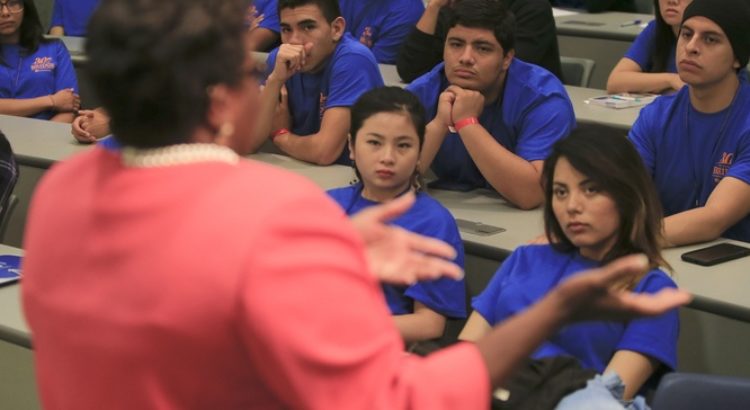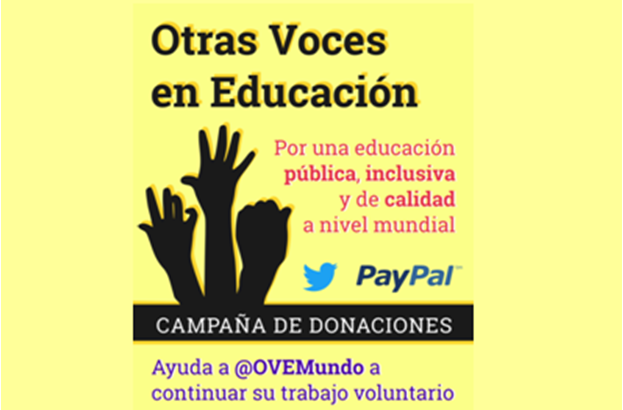América del Norte/EEUU/educationdive.com
Resumen: Los educadores deben trabajar para encontrar mejores formas de crear un currículum culturalmente relevante y reconfigurar su enfoque de la pedagogía mientras trabajan con los estudiantes, dice el Dr. Christopher Emdin, profesor asociado del Teacher’s College de la Universidad de Columbia . Durante una presentación en la escuela esta semana, Emdin advirtió que incorporar el conocimiento cultural en la enseñanza podría ser problemático, particularmente cuando los educadores utilizan sus propios prejuicios prejuiciosos de cómo creen que la cultura puede manifestarse en la instrucción en el aula.
«Si estás involucrado en una pedagogía culturalmente relevante y vas a [Teacher’s College] o donde sea, y entiendes la jerga, y luego vas allí y comienzas a hacer algo que es una versión bastarda de la cultura auténtica». Emdin dijo, «es difícil para mí poder discutir contigo para hacer algo diferente, porque tienes todo el aprendizaje de tu escuela que te hace pensar que es lo correcto».
Emdin habló durante » Reimaginando la Educación: Enseñanza y Aprendizaje en Escuelas Racialmente Diversas «, una jornada de cuatro días conducido en la universidad. El segundo evento anual se llevó a cabo para investigar las oportunidades y desafíos inherentes a «crear y mantener escuelas integradas por raza, por etnia y socio-económicamente» e incluyó una variedad de discusiones, talleres y paneles con educadores de todo el país y el mundo.
Además de su papel en Teachers ‘College, Emdin también es el jefe deScience Genius BATTLES , que integra la música y la cultura hip-hop en la enseñanza de la ciencia para los estudiantes. Durante su presentación, Emdin habló sobre su trabajo en la formación y el cultivo de la comunidad de #HipHopEd, y habló sobre la necesidad de una » pedagogía de la realidad «.
Educators must work to find better ways of building culturally relevant curriculum and reconfiguring their approach to pedagogy as they work with students, says Dr. Christopher Emdin, an associate professor withTeacher’s College, Columbia University.
During a presentation at the school this week, Emdin cautioned that incorporating cultural insight into teaching could be problematic, particularly when educators utilize their own biased preconceptions of how they think culture can manifest in classroom instruction.“If you’re engaging in culturally relevant pedagogy and you go on to [Teacher’s College] or wherever it is, and you understand the lingo, and then you go in there and start doing something that’s a bastardized version of the authentic culture,” Emdin said, “it’s hard for me to be able to argue with you to do something different, because you’ve got all your school learning that makes you think it’s the right thing to do.”
Emdin spoke during “Reimagining Education: Teaching and Learning in Racially Diverse Schools,” a four-day institute conducted at the college. The second annual event was held to probe the opportunities and challenges that were inherent in “creating and sustaining racially, ethnically and socio-economically integrated schools,” and included a variety of discussions, workshops and panels with educators from across the country and world.
In addition to his role at Teachers’ College, Emdin is also the head of Science Genius B.A.T.T.L.E.S, which integrates hip-hop music and culture into the teaching of science for students. During his presentation, Emdin spoke about his work in forming and cultivating the community of #HipHopEd, and spoke about the need for “reality pedagogy.”
“We keep remixing it and reimagining the phrasing around what we know is right to do, because before long the word that is supposed to be powerful gets to be a part of the lexicon of academia,” he said. “It starts becoming part of the language of the system, and once it becomes the language of the system, and once it becomes part of the system, it retools and re-fabricates and reimagines what’s supposed to be progressive pedagogy, and then you have a lot of folks who’ll cite you Paulo Freire and Frantz Fanon who are doing damage to the lives of young people.”
Numerous speakers and participants throughout the four days of the conference held discussions on how to achieve equity pedagogy, with educators mulling how they could revamp their curriculum to facilitate students from diverse backgrounds to move forward on an equitable and effective foundation.










 Users Today : 48
Users Today : 48 Total Users : 35460179
Total Users : 35460179 Views Today : 66
Views Today : 66 Total views : 3418849
Total views : 3418849